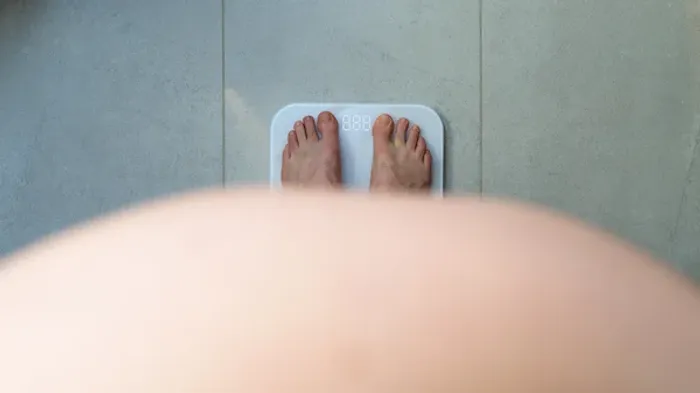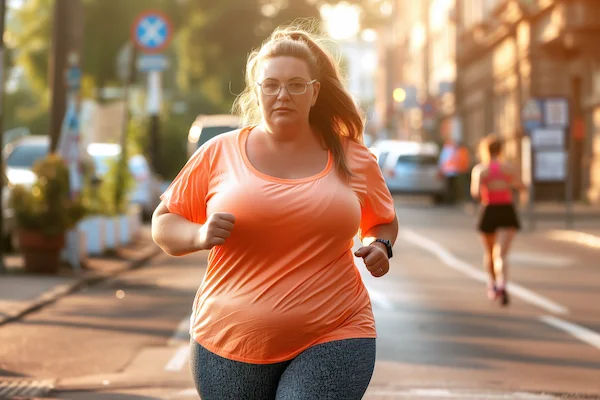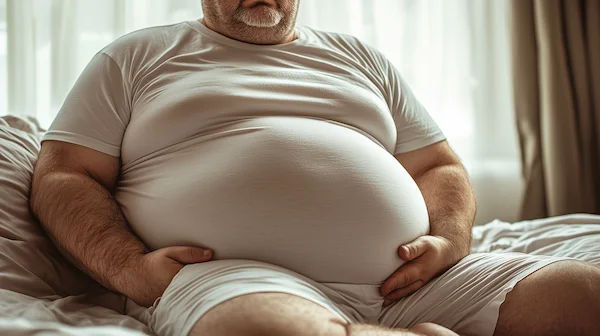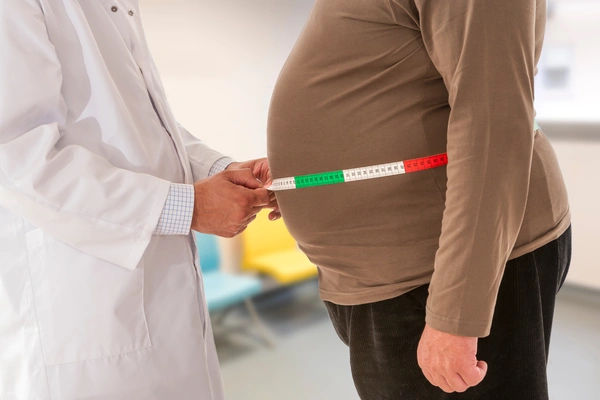Why Are Young Adults Becoming Obese? A Modern Health Crisis
Discover why young adults are increasingly becoming obese. Explore lifestyle, diet, stress, and economic factors driving this health crisis and learn practical strategies to reverse it.


Introduction
In recent decades, a quiet but powerful health shift has occurred among young adults. The image of the invincible twenty-something is being replaced by a reality where obesity is increasingly common. This isn't just about aesthetics; it's a complex public health issue with deep roots in our modern lifestyle. For many, the transition to adulthood—marked by university, first jobs, financial independence, and new social pressures—unintentionally paves the way for weight gain. This article delves beyond the simple "eat less, move more" mantra to explore the real, multifaceted reasons young adults are becoming obese, the significant risks involved, and, most importantly, the practical strategies to reclaim health and vitality.
We will unpack the "perfect storm" of factors at play, from the seductive convenience of ultra-processed foods and the sedentary nature of modern work and leisure to the profound impact of stress and economic constraints. Understanding these causes is the first step toward empowering a generation to build healthier, more sustainable lives.
The Perfect Storm: Understanding the Multifaceted Causes
The rise in obesity among young adults isn't due to a single failure of willpower. It's the result of a convergence of powerful environmental, economic, and psychological forces that make unhealthy choices the easiest ones.
The Sedentary Shift: From Playgrounds to Screens
The fundamental nature of daily life has changed. Many young adults transition from the structured physical activity of school to desk-bound jobs in tech, finance, or other service industries. Leisure time, once spent in social, active pursuits, is now dominated by screens—streaming services, video games, and social media. This creates a significant calorie deficit in energy expenditure. Furthermore, the convenience of food delivery apps means a high-calorie meal is just a tap away, eliminating even the minimal activity of grocery shopping or cooking. This combination of low activity and high-calorie access is a primary driver of weight gain, contributing significantly to the reasons young adults are becoming obese.
The Diet Revolution: Ultra-Processed Foods & Liquid Calories
The modern food environment is saturated with ultra-processed foods—items designed in labs to be hyper-palatable and irresistible. For young adults on a tight budget and schedule, these foods are cheap, convenient, and have a long shelf life. Think instant noodles, frozen pizzas, sugary cereals, and fast food. These products are typically high in unhealthy fats, refined sugars, and salt, while being low in fibre and essential nutrients. This leads to overconsumption because they don't trigger the same fullness signals as whole foods.
Equally culpable are liquid calories. Sugary fizzy drinks, energy drinks, speciality coffees laden with syrups and cream, and even fruit juices pack a massive caloric punch without providing satiety. It's remarkably easy to consume hundreds of "empty" calories without realising it, a common trap in the causes of obesity in 20s and 30s.
The Stress Connection: Mental Health and Emotional Eating
Young adulthood is a period of high stress: academic pressure, navigating career uncertainty, managing finances, and building social relationships. Chronic stress elevates cortisol, a hormone that can increase appetite and drive cravings for high-fat, high-sugar "comfort foods." This pattern of emotional eating in young adults becomes a coping mechanism. Eating provides temporary relief from anxiety or sadness, creating a vicious cycle where poor nutrition worsens mental health, which in turn leads to more unhealthy eating. This strong link between mental and physical health is often overlooked in traditional discussions of weight.
Consult Top Specialists for Personalised Tips
The Economic Squeeze: Time, Money, and Access to Healthy Food
The perception that eating healthily is expensive is a significant barrier. When time is scarce and money is tight, a pound menu meal is often more appealing than buying fresh produce, lean proteins, and whole grains—which require time, knowledge, and facilities to prepare. This issue of healthy eating on a budget for students and young professionals is very real. Furthermore, "food deserts"—areas with limited access to affordable and nutritious food—are a problem in many urban and rural communities, making healthy choices logistically difficult.
Beyond Weight: The Immediate and Long-Term Health Risks
Obesity is far more than a number on a scale; it's a state of chronic inflammation that predisposes the body to a host of serious conditions, many of which are now appearing at younger ages.
Physical Health Consequences
Carrying excess weight puts strain on virtually every system in the body. Young adults who are obese face a higher risk of developing conditions once associated with middle age:
- Type 2 Diabetes: Obesity is a leading cause of insulin resistance.
- Cardiovascular Disease: High blood pressure, high cholesterol, and an increased risk of heart attack and stroke are major concerns.
- Joint Problems: Excess weight accelerates wear and tear on joints, leading to pain and osteoarthritis.
- Sleep Apnoea: Obesity is a primary risk factor for this serious sleep disorder.
- Fertility Issues: Conditions like Polycystic Ovary Syndrome (PCOS) are strongly linked to obesity.
If you're experiencing unexplained fatigue, persistent aches, or other symptoms that concern you, it's wise to consult a doctor online with Apollo24|7 for further evaluation. Early intervention is key.
Mental and Emotional Toll
The impact isn't only physical. The social stigma surrounding obesity can lead to profound psychological distress, including depression, anxiety, and low self-esteem. This can create an isolating feedback loop, where poor mental health leads to poorer lifestyle choices, further exacerbating the problem. The impact of social media on body image can intensify these feelings, creating unrealistic comparisons and deepening body dissatisfaction.
Reversing the Trend: Actionable Strategies for a Healthier Life
The good news is that this trend is reversible. Small, consistent changes can yield significant improvements in metabolic health and overall well-being.
Small Shifts, Big Impact: Nutrition Hacks for Busy Lives
You don't need a perfect diet overnight. Start with manageable swaps:
- Hydrate Smartly: Replace sugary drinks with water, herbal tea, or sparkling water.
- Plan for Snacks: Keep healthy snacks like fruits, nuts, or yoghurt on hand to avoid vending machine temptations.
- The 80/20 Rule: Aim for nutritious foods 80% of the time, allowing for flexibility 20% of the time to avoid burnout.
- Cook in Batches: Prepare large quantities of staples like brown rice, grilled chicken, or roasted vegetables to assemble quick meals during the week.
Finding Movement You Enjoy: Exercise Beyond the Gym
Physical activity doesn't have to mean a gruelling gym session. The goal is to move more throughout the day:
- Incorporate NEAT: Non-Exercise Activity Thermogenesis (NEAT) includes walking, taking the stairs, and stretching. Use a standing desk or take a 5-minute walk every hour.
- Find Your Joy: Do you like dancing? Hiking? Swimming? Find an activity you genuinely enjoy, and it won't feel like a chore. These are excellent best exercises for obese beginners as they are low-impact.
If your condition does not improve after trying these methods, book a physical visit to a doctor with Apollo24|7 to discuss a safe and effective exercise plan tailored to your needs.
Prioritising Sleep and Stress Management
Adequate sleep and stress reduction are non-negotiable for weight management.
- Sleep Hygiene: Aim for 7-9 hours of quality sleep per night. Poor sleep disrupts hunger hormones, making you crave more food.
- Mindful Practices: Incorporate techniques like meditation, deep breathing, or journaling to manage stress levels without turning to food.
Conclusion
The challenge of obesity among young adults is a defining health issue of our time, but it is not insurmountable. By understanding the complex interplay of modern lifestyle factors—from digital sedentariness and the food industry's influence to the very real pressures of "adulting"—we can move beyond blame and toward effective solutions. The path to better health isn't about perfection; it's about awareness and incremental progress. It's about choosing the stairs, opting for a home-cooked meal over delivery once more a week, and recognising the need to manage stress proactively.
Your health is your most valuable asset. Taking charge of it now can prevent a lifetime of complications and lead to a more vibrant, energetic future. Start with one change today. Listen to your body, and remember that support is available. If you want to understand your personal health risks better, Apollo24|7 offers convenient home collection for tests like vitamin D or HbA1c, which can provide valuable insights into your metabolic health.
Consult Top Specialists
Consult Top Specialists for Personalised Tips

Dr Syed Mateen Pasha
General Physician
2 Years • MBBS
Bengaluru
PRESTIGE SHANTHINIKETAN - SOCIETY CLINIC, Bengaluru

Dr. Anand Ravi
General Physician
2 Years • MBBS
Bengaluru
PRESTIGE SHANTHINIKETAN - SOCIETY CLINIC, Bengaluru

Dr. Vivek D
General Physician
4 Years • MBBS
Bengaluru
PRESTIGE SHANTHINIKETAN - SOCIETY CLINIC, Bengaluru

Dr. Ashita Kuruvilla
General Physician/ Internal Medicine Specialist
7 Years • MBBS
East Midnapore
VIVEKANANDA SEBA SADAN, East Midnapore

Dr. Debdatta Pati
Psychiatrist
18 Years • MBBS, DPM, MD (PSYCHIATRY)
Kolkata
MCR SUPER SPECIALITY POLY CLINIC & PATHOLOGY, Kolkata
Consult Top Specialists

Dr Syed Mateen Pasha
General Physician
2 Years • MBBS
Bengaluru
PRESTIGE SHANTHINIKETAN - SOCIETY CLINIC, Bengaluru

Dr. Anand Ravi
General Physician
2 Years • MBBS
Bengaluru
PRESTIGE SHANTHINIKETAN - SOCIETY CLINIC, Bengaluru

Dr. Vivek D
General Physician
4 Years • MBBS
Bengaluru
PRESTIGE SHANTHINIKETAN - SOCIETY CLINIC, Bengaluru

Dr. Ashita Kuruvilla
General Physician/ Internal Medicine Specialist
7 Years • MBBS
East Midnapore
VIVEKANANDA SEBA SADAN, East Midnapore

Dr. Debdatta Pati
Psychiatrist
18 Years • MBBS, DPM, MD (PSYCHIATRY)
Kolkata
MCR SUPER SPECIALITY POLY CLINIC & PATHOLOGY, Kolkata
More articles from Obesity
Frequently Asked Questions
Is weight gain in your early 20s normal?
A small amount of weight gain as metabolism naturally slows slightly after adolescence can be normal. However, rapid or significant weight gain is not a normal part of ageing and is usually a sign of lifestyle factors that need to be addressed, such as decreased activity and dietary changes.
Can you reverse the effects of obesity if you lose weight in your 20s?
Yes, absolutely. The body is remarkably resilient. Losing even a modest amount of weight (5-10% of body weight) in young adulthood can dramatically reduce the risk of developing obesity-related diseases like type 2 diabetes and high blood pressure, and often reverse early signs of these conditions.
I'm too busy to cook and exercise. What can I really do?
Focus on 'good enough.' You don't need to cook gourmet meals or spend hours at the gym. Try simple strategies: use a slow cooker for easy meals, choose whole-food snacks (an apple, a handful of nuts), and incorporate 'exercise snacks' like a 10-minute walk after lunch or some stretching while watching TV. Consistency trumps intensity.
How does stress cause weight gain around the stomach?
Chronic stress leads to high levels of the hormone cortisol. Elevated cortisol can increase appetite, particularly for unhealthy foods, and is known to promote the storage of fat in the abdominal area (visceral fat), which is particularly harmful to health.
When should I see a doctor about my weight?
It's a good idea to consult a doctor if you are concerned about your weight, if you have been unable to lose weight through diet and exercise, or if you are experiencing symptoms like extreme fatigue, shortness of breath, or joint pain. A doctor can rule out underlying medical conditions and help you create a safe, effective plan.



_0.webp)
